An ermerging trend in several mainstream media stories of the past year is that some of the biggest food suppliers – Costco, Wal-Mart, McDonald’s, Burger King – have the best food safety requirements. Quality is a different issue and largely 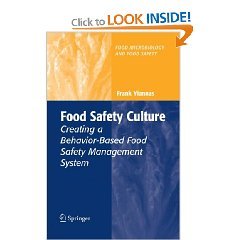 based on personal preference and lifestyle choices. Cool. But there are some microbiological basics that food safety types have to pay attention too.
based on personal preference and lifestyle choices. Cool. But there are some microbiological basics that food safety types have to pay attention too.
Frank ‘food safety culture’ Yiannas, vp for food safety at Wal-Mart Stores, Inc. said today the company will implement additional beef safety measures designed to further protect customers against foodborne illnesses.
The new process controls standards and goals are additions to a food safety program that already requires ground beef suppliers to test for E.coli O157:H7 and achieve prevention-based certification against one of the Global Food Safety Initiative (GFSI) internationally recognized standards.
Yiannas said,
“In light of recent beef recalls, we determined it was prudent to require an additional layer of protection for our customers.”
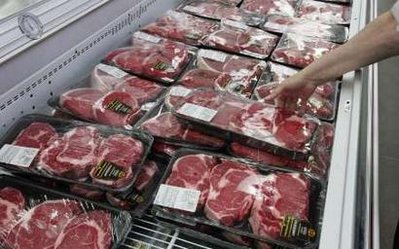 The new program requires Walmart and Sam’s Club beef suppliers to implement controls that would significantly reduce potential contamination levels and validate that the measures they’ve implemented are effective through specialized testing.
The new program requires Walmart and Sam’s Club beef suppliers to implement controls that would significantly reduce potential contamination levels and validate that the measures they’ve implemented are effective through specialized testing.
Suppliers who do not operate slaughter houses must be in compliance with the new standard by June 2011. For beef slaughterhouse suppliers, there is a two-step approach with the first step to be completed by June 2011 and the second by June 2012.
Walmart and Sam’s Club will work closely with beef suppliers to ensure that the new requirement is implemented without additional cost to customers.

 My first guest is Doug Powell, associate professor, food safety, Dept. Diagnostic Medicine/Pathobiology, Kansas State University and the father of five girls. His entertainingly combative
My first guest is Doug Powell, associate professor, food safety, Dept. Diagnostic Medicine/Pathobiology, Kansas State University and the father of five girls. His entertainingly combative 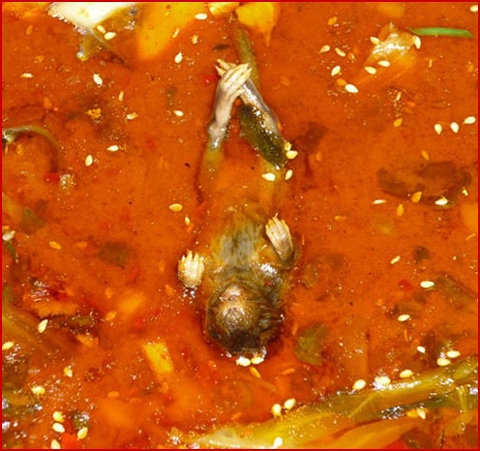 My Dr. Oz friend
My Dr. Oz friend government has decided to remind Canadians of the importance of food safety for older adults.
government has decided to remind Canadians of the importance of food safety for older adults.
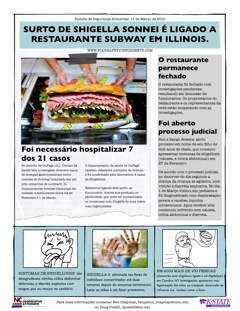 Its part of a dramatic spike in listeria cases in Ontario since January that has renewed concerns about the country’s food safety system 18 months after 22 Canadians died in the Maple Leaf tragedy (fiasco – dp).
Its part of a dramatic spike in listeria cases in Ontario since January that has renewed concerns about the country’s food safety system 18 months after 22 Canadians died in the Maple Leaf tragedy (fiasco – dp).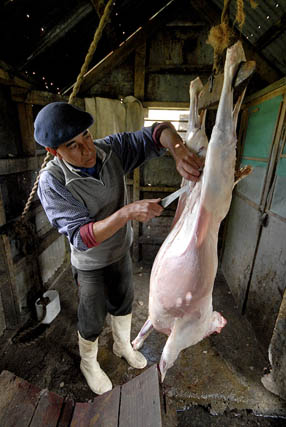 Apparently, Tijssen’s house had been under surveillance for several days last November before officers from the Ministry of Natural Resources and Ottawa police stopped a car leaving the property and confiscated 18 kilograms of pork. Tijssen and a friend had jointly bought a pig and slaughtered it.
Apparently, Tijssen’s house had been under surveillance for several days last November before officers from the Ministry of Natural Resources and Ottawa police stopped a car leaving the property and confiscated 18 kilograms of pork. Tijssen and a friend had jointly bought a pig and slaughtered it.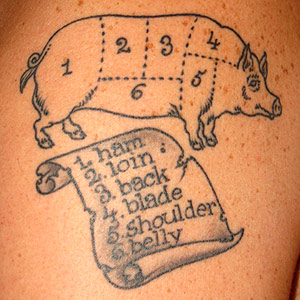 Brent Ross, a spokesman for the Ontario Ministry of Agriculture, Food and Rural Affairs, said the ministry moderates its enforcement of meat handling rules for religious or ethnic reasons, for example, when Muslims slaughter animals for religious reasons.
Brent Ross, a spokesman for the Ontario Ministry of Agriculture, Food and Rural Affairs, said the ministry moderates its enforcement of meat handling rules for religious or ethnic reasons, for example, when Muslims slaughter animals for religious reasons. ANSA.it is reporting
ANSA.it is reporting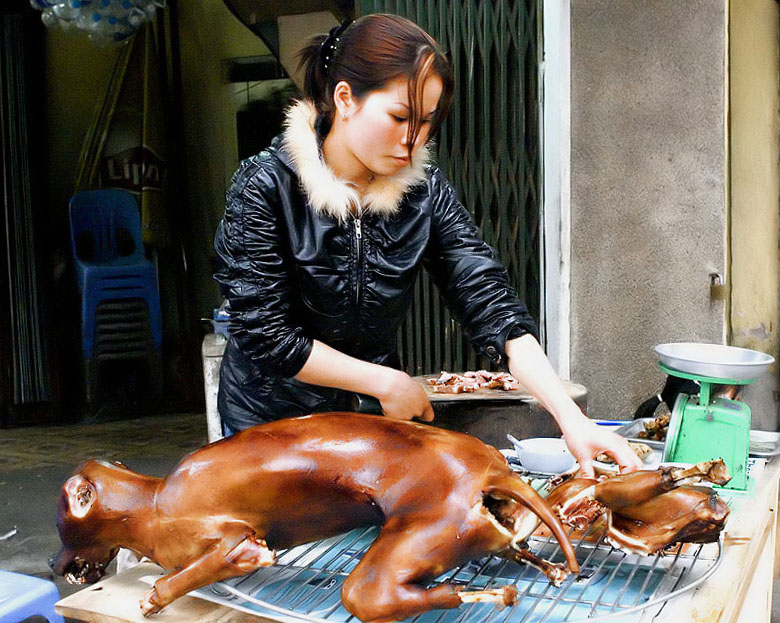 The Times of London reports that a proposed law calls for imposing fines, jail time or both for anyone caught eating or selling dog or cat meat. Dog meat is also known as “fragrant meat” and is thought to boost energy and male virility. It’s also a delicacy.
The Times of London reports that a proposed law calls for imposing fines, jail time or both for anyone caught eating or selling dog or cat meat. Dog meat is also known as “fragrant meat” and is thought to boost energy and male virility. It’s also a delicacy.  Wal-Mart store about 1:30 a.m. Friday and urinating on the counter containing steaks.??
Wal-Mart store about 1:30 a.m. Friday and urinating on the counter containing steaks.?? Last Friday, the woman allegedly made a pair of calls to 911, including a hang-up and another where a woman was heard screaming.
Last Friday, the woman allegedly made a pair of calls to 911, including a hang-up and another where a woman was heard screaming.